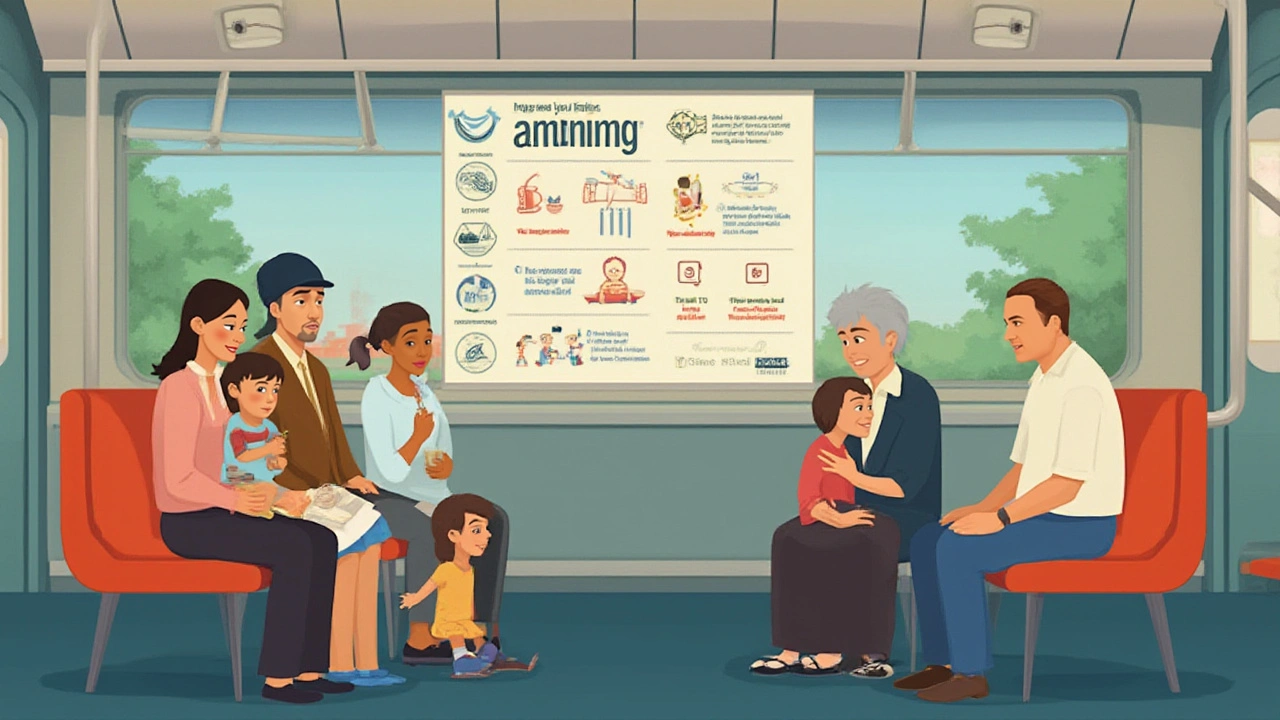Motion sickness: Causes, quick fixes, and what actually works
Motion sickness hits as soon as your eyes and inner ear disagree — and it can ruin a trip fast. If you get queasy on boats, planes, cars, or even VR, this guide gives clear, practical steps to stop it before it starts.
What causes it? Your inner ear senses motion while your eyes may not, or vice versa. That mismatch sends mixed signals to your brain and triggers nausea, sweating, dizziness, and sometimes vomiting. It’s more common in kids, pregnant people, and anyone sensitive to motion.
Quick, practical prevention you can try right now:
- Pick your seat. Sit where motion feels smallest: front seat in a car, over the wing on a plane, or mid-ship and low on a boat.
- Face forward and look at the horizon. Fixing your gaze on a steady point helps your brain match what your inner ear feels.
- Fresh air helps. Open a window or point an air vent at your face. Cool air reduces nausea for many people.
- Avoid heavy meals and alcohol before travel. A light snack is okay, but greasy or spicy food often makes symptoms worse.
- Use ginger. Ginger candy, tea, or capsules can cut nausea for many people and has fewer side effects than drugs.
- Try acupressure bands. Wrist bands that press the P6 point often reduce nausea for kids and adults.
- Move less. Keep your head still and use a neck pillow for long trips.
Medicines that work: over-the-counter meclizine (Antivert, Bonine) and dimenhydrinate (Dramamine) are common. Scopolamine patches behind the ear last for days and help sea sickness. Start meds at least 30–60 minutes before travel, following dosing instructions. If you’re pregnant or on other meds, check with your doctor first.
When motion sickness becomes a real problem:
- You get frequent vomiting, severe dehydration, or can't function on short trips.
- Symptoms persist after travel or start during everyday activities.
In those cases, see your doctor. They may adjust medications, check for balance disorders, or suggest physical therapy for your vestibular system.
Kids and motion sickness: Many children outgrow it. Use seating, distraction, ginger, or acupressure bands first. For medicines, ask a pediatrician for the right dose and timing.
Travel planning tips: Book morning flights, choose smooth routes when possible, and plan stops on long drives. For long sea trips, pick larger ships and cabins near the center of the vessel.
If you want more about medicines like Antivert or where to buy them safely online, check our guides and pharmacy reviews. Follow these steps and you’ll cut your chances of getting sick — and keep your trips enjoyable.
Best over-the-counter choices
Meclizine and dimenhydrinate are the go-to pills. Meclizine lasts longer and makes you drowsy less often. Dimenhydrinate acts faster but can cause sleepiness. Use as directed and don’t mix with alcohol.
Natural tricks that actually work
Sip ginger ale or chew crystallized ginger. Try peppermint lozenges for a quick fix. Avoid screens and focus on the view outside. Deep, slow breathing calms your stomach faster than pacing.
A deep dive into Antivert, a medication for motion sickness and vertigo. Explained simply, with facts, safety tips, side effect details, and troubleshooting tricks.

